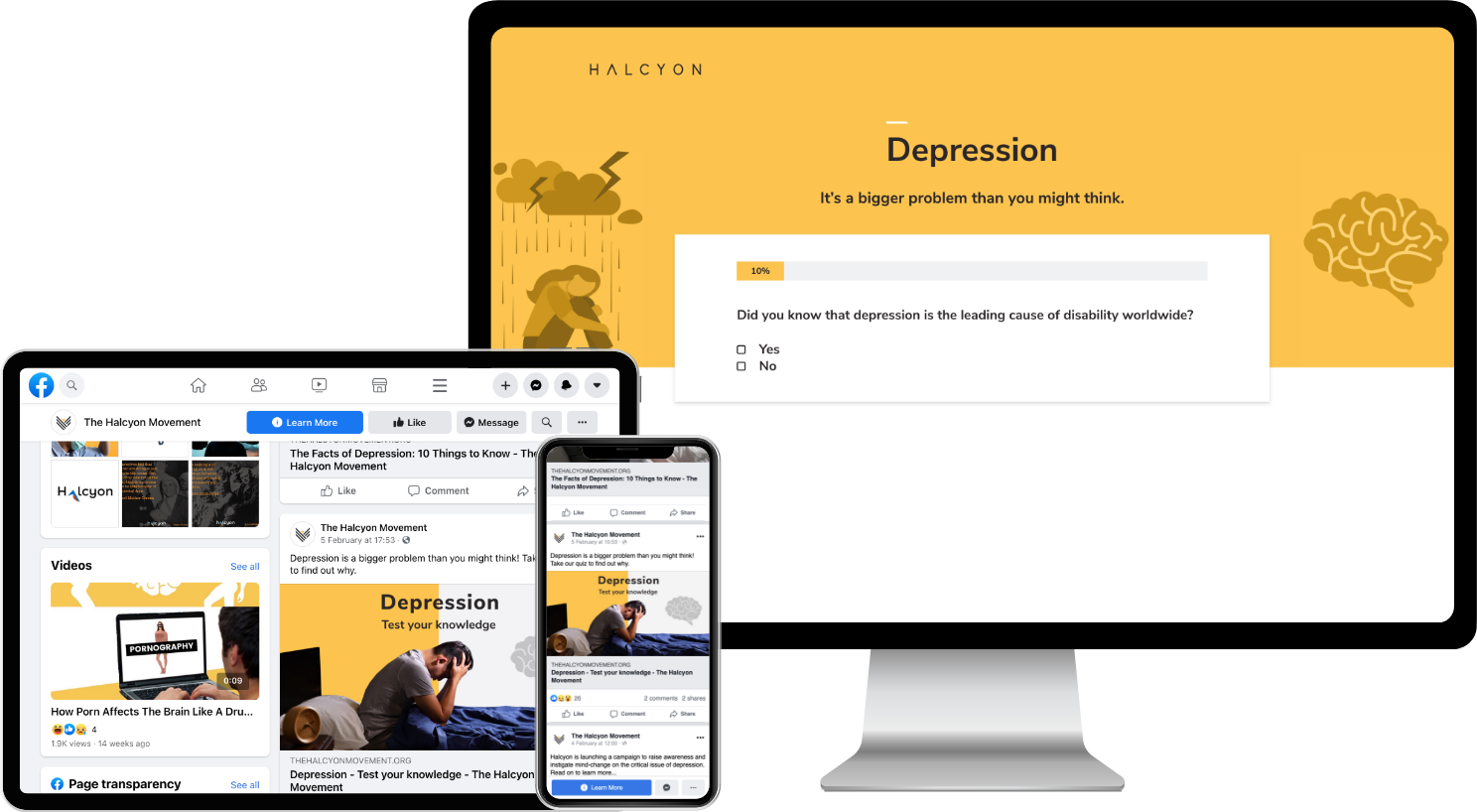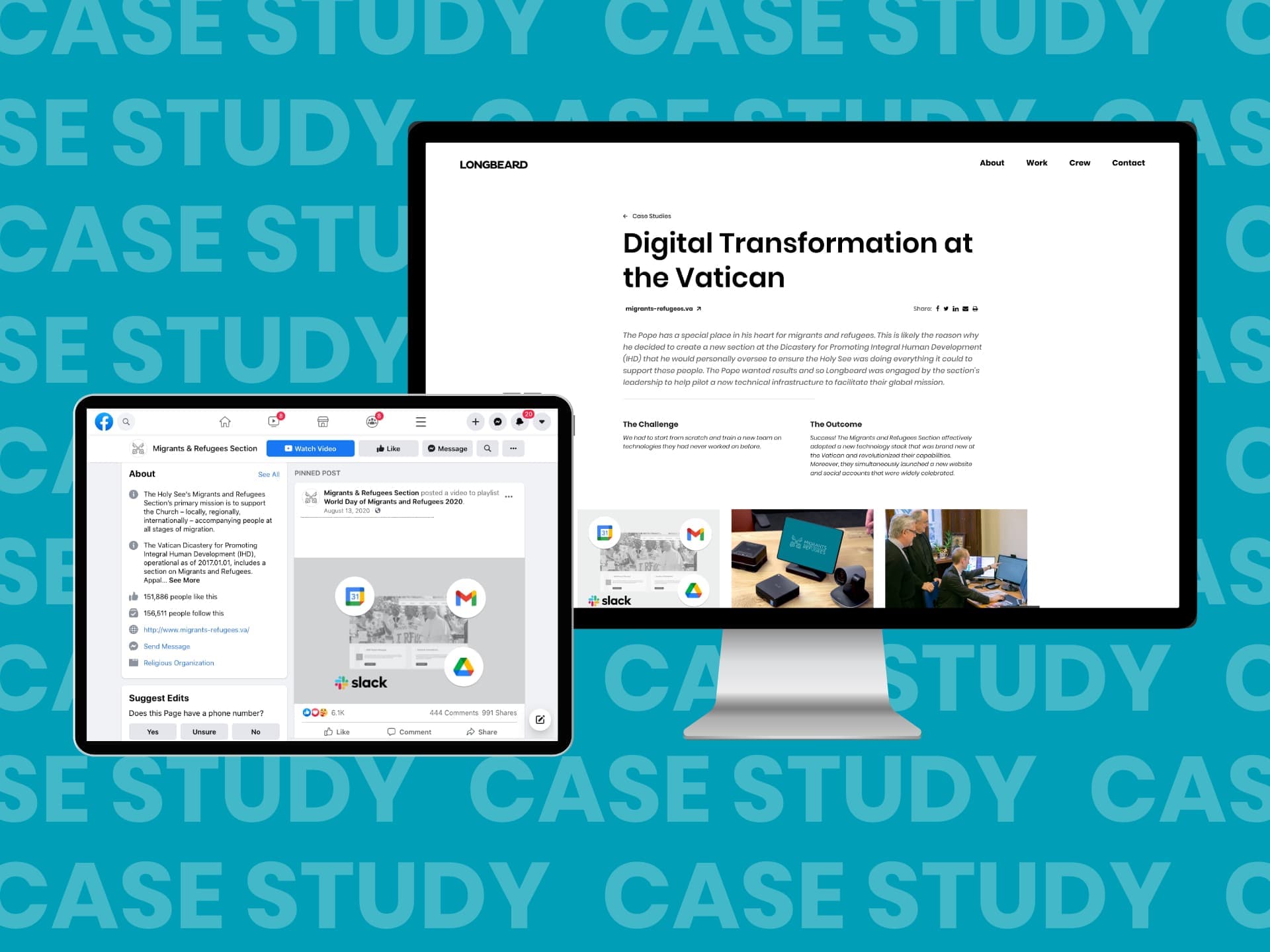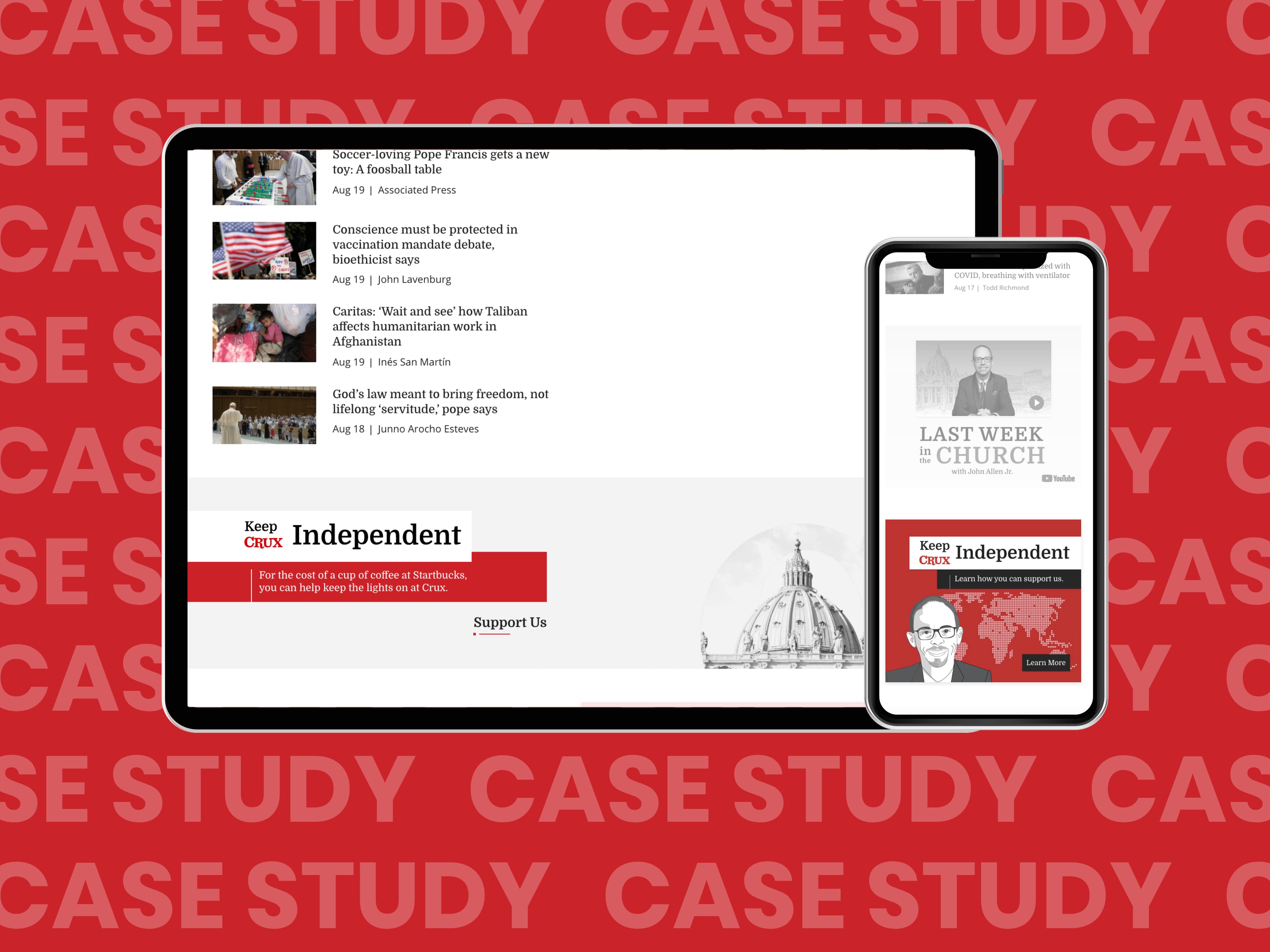Fighting Depression
Depression is the leading cause of disability worldwide, affecting more than 264 million people of all ages. It’s also a leading contributor to the global burden of disease. And yet, depression research is still under-funded, people suffering with it are still stigmatized, and treatment options are shamefully limited. Halcyon hired us to devise a way to inform and activate people to address this health crisis.
The Challenge
Designing a vehicle to raise awareness and instigate mind-change on depression that would be effective on a competitive platform like Facebook.
The Outcome
Very successful! 89% of those surveyed reported caring more about depression after the quiz and 89.9% of people who completed the quiz stated they were more inclined to change the way they live to address depression.

The Objective
Raise awareness and encourage people to take action on the issue of depression.
The Challenges
- Design. Designing a hook that would effectively grab the attention of users on their social feeds and convince them to visit our survey landing page.
- IQ. A quiz was hypothesized to appeal more to those who acknowledge they’re suffering with depression or who know others who are. The challenge was to entice those outside these groups to take an interest.
- Survey. Curating a survey that would inform/challenge/scandalize and also encourage people to take action to address societal depression.
- Toolkit. Identifying an accessible resource that could serve as a toolkit for people who want to take action and handle their own depression or support others in their efforts.

COVID-19 has exasperated what was already a global mental health pandemic. Halcyon wanted to move swiftly to create a tool that could aid those suffering or supporting those suffering with depression.
Matthew H. Sanders
CEO, Longbeard
The Insights
- Audiences. Target audience was U.S. based, within the 18-65+ age range, and English-speaking. Facebook interest research was done to focus the audience further to ensure audience relevance would be high.
- IQ. Relative to the other campaigns Longbeard has executed for Halcyon, users were significantly better informed on the issue of depression. 60% of respondents were aware of the facts we presented on depression. These results may be attributed to the quiz appealing to those who have experience with depression, making their knowledge of the issue higher.
- Demographics. 59.7% of respondents were female. 59% of respondents were over the age of 55. Those 18 and younger were the least engaged demographic. In the U.S., respondents from New York, Texas, Michigan, and Pennsylvania ranked the highest in engagement.
- Devices. 60.7% of respondents did so on their mobile devices. Mobile remains the device of choice for respondents, which is interesting given the senior age of most respondents.
- Costs. $0.34 was the cost per resource (toolkit) link click. Given the competitiveness in the U.S. market, this was seen as a very positive result. $0.16 was the cost to get someone from Facebook to our depression landing page. Again, an encouraging result.
- Conversions. 94.59% of people who completed the quiz clicked on the post survey resource (toolkit). 89% of respondents indicated they cared more about the issue of depression after our quiz. 89.9% of respondents indicated they would be willing to change the way they lived to address the issue of depression. 29.93% of people who landed on the initial quiz page from Facebook completed the quiz.

One of the most encouraging results of this campaign was the eager willingness of people to take action to address the issue of depression. We need more organizations like Halcyon willing to commit resources to depression awareness efforts if we are to turn the tide.
Matthew H. Sanders
CEO, Longbeard
The Outcome
- Changing Minds. 89% of respondents stated they care more about depression after what they learned from our quiz.
- Changing Behavior. 89.9% of respondents stated they would be more inclined to change the way they live to address depression.
- Action. 94.59% of respondents who completed the survey accessed the post survey toolkit on how to manage depression.



